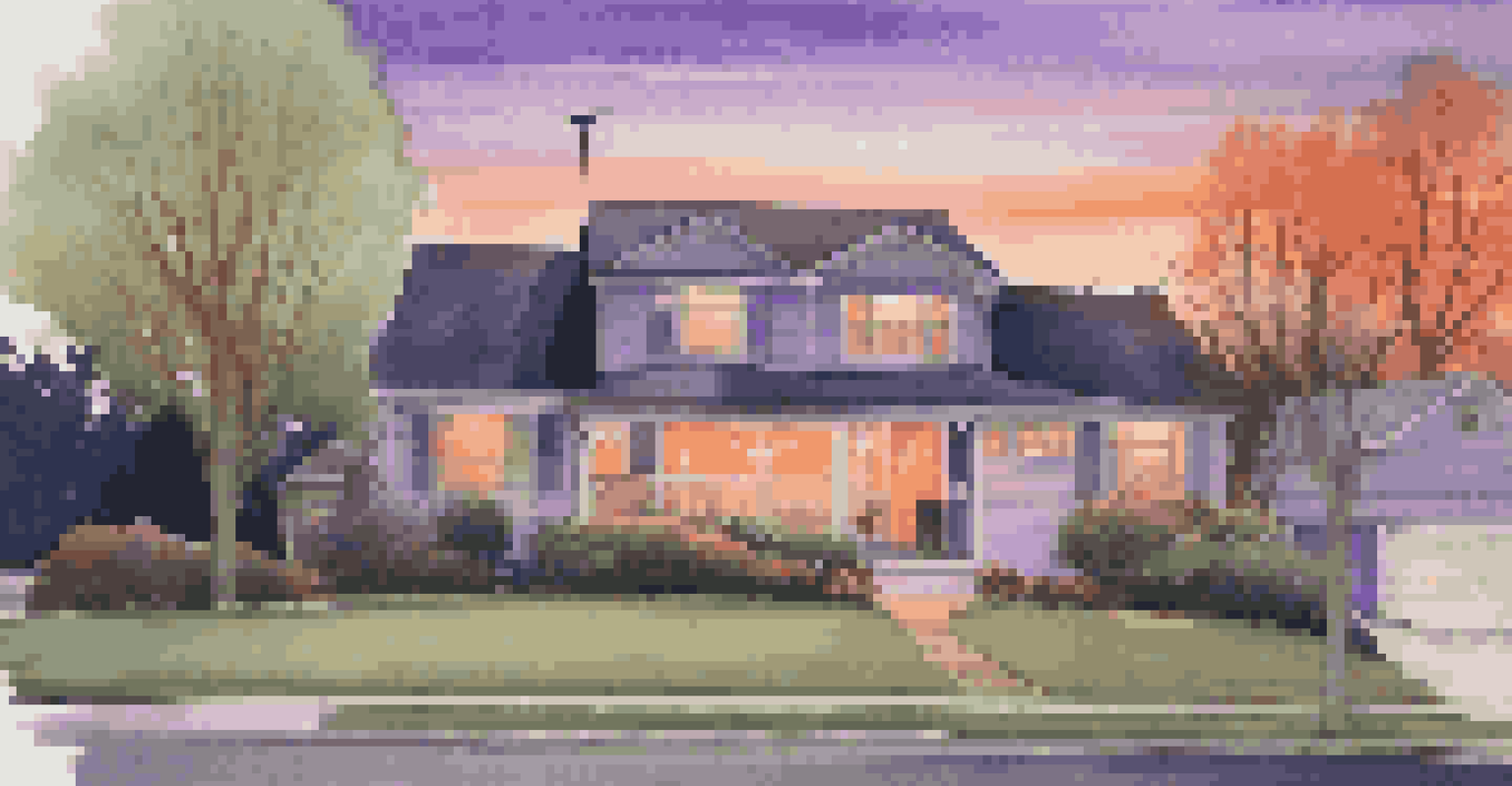Understanding the Risks of Home Security Systems

The Importance of Home Security Systems Today
Home security systems are more crucial than ever, especially with rising crime rates in many areas. They offer a sense of safety and peace of mind, protecting our loved ones and possessions. However, while these systems provide numerous benefits, it’s essential to also consider their potential risks.
The best way to predict the future is to create it.
Many homeowners invest in security systems without fully understanding how they work or the vulnerabilities they might have. This lack of knowledge can lead to overconfidence in their protective capabilities. Understanding the potential pitfalls can help users make more informed decisions about their security choices.
In the digital age, securing your home isn't just about locks and alarms; it's about understanding the technology behind them. Being aware of the risks associated with home security systems can empower homeowners to choose the right solutions tailored to their needs.
Common Vulnerabilities in Home Security Systems
Just like any technology, home security systems can have vulnerabilities. These weaknesses may include outdated software, weak passwords, or even physical tampering. A common example is using easily guessable passwords, which can make systems an easy target for cybercriminals.

Wireless systems, while convenient, can be particularly susceptible to hacking. Attackers can intercept signals or gain access to the network if proper security measures aren’t in place. This highlights the importance of regular system updates and strong encryption to mitigate risks.
Understanding Security System Risks
Homeowners must be aware of the vulnerabilities in their security systems to make informed decisions and avoid overconfidence.
Moreover, physical vulnerabilities exist, such as poor installation or inadequate equipment. If cameras aren’t positioned correctly, or if sensors are placed in non-ideal locations, the effectiveness of the entire system can be compromised. Ensuring a professional installation can help address these issues.
The Risk of False Sense of Security
One of the significant risks associated with home security systems is the false sense of security they can create. Homeowners may believe that simply having a system in place guarantees their safety, which isn't always true. This can lead to negligence in other areas of home security.
Security is mostly a superstition. It does not exist in nature.
For instance, a homeowner might neglect basic safety practices, such as locking doors or being vigilant about who they allow into their homes. Relying solely on technology can create complacency, making homes more vulnerable to break-ins or other security issues.
It's essential to balance reliance on technology with proactive measures. Home security should be part of a broader strategy that includes community awareness and personal vigilance to create a genuinely safe environment.
Privacy Concerns with Security Cameras
While security cameras can deter crime and provide valuable evidence, they also raise privacy concerns. The presence of cameras can lead to uncomfortable feelings among family members or guests, as they may feel they are being constantly monitored. This is an important aspect to consider when installing a home security system.
Moreover, data collected by security cameras can be vulnerable to breaches. If the system is hacked, personal footage could be misused or shared without consent. Homeowners must be aware of where their data is stored and how it is protected.
Balancing Tech and Personal Safety
Relying solely on technology can create complacency; a comprehensive approach to home security includes personal vigilance and community awareness.
To address these concerns, it’s crucial to choose systems that prioritize privacy and data security. Implementing features like local storage and ensuring compliance with privacy regulations can help protect personal information while still enjoying the benefits of a security system.
Dependence on Technology and Power Outages
Home security systems often rely heavily on technology, which can be a double-edged sword. While these systems offer advanced features, they can also fail during power outages or technical malfunctions. This dependence on technology means that, in certain situations, security measures may be compromised.
For example, if the power goes out and a security system doesn't have a backup battery, it may cease to function. This can leave homes unprotected during critical moments. Homeowners should consider systems with backup solutions to mitigate the risk of losing security during outages.
In addition to backup power, it’s vital to have a plan in place for emergencies. Regularly testing the system and understanding how it operates during different scenarios can help ensure it provides the necessary protection when needed most.
Costs and Financial Risks of Security Systems
Investing in a home security system can be a significant financial commitment. The costs can range from installation fees to monthly monitoring charges, and these expenses can quickly add up. Homeowners must weigh the benefits against these financial implications before making a decision.
Moreover, if the system is not adequately maintained, it could become ineffective, leading to wasted money. For instance, a system with outdated technology may not provide the level of protection expected, resulting in potential losses during a break-in.
Choosing a System Wisely
Selecting the right home security system requires careful consideration of individual needs and thorough research to ensure effectiveness.
Understanding the total cost of ownership, including maintenance and upgrades, is essential. Homeowners should budget appropriately and consider potential long-term expenses to ensure they can maintain their security systems effectively.
Choosing the Right Home Security System
With so many options available, selecting the right home security system can feel overwhelming. It's essential to consider your specific needs, the layout of your home, and the level of security you desire. Not all systems provide the same features, so doing thorough research is vital.
Consulting with professionals or reading reviews can help identify systems that best suit your requirements. It’s also crucial to ask questions about the system's vulnerabilities and how they plan to address them, ensuring you make an informed choice.

Ultimately, the right home security system should align with your lifestyle and provide peace of mind. Taking the time to choose wisely can make all the difference in effectively protecting your home and loved ones.